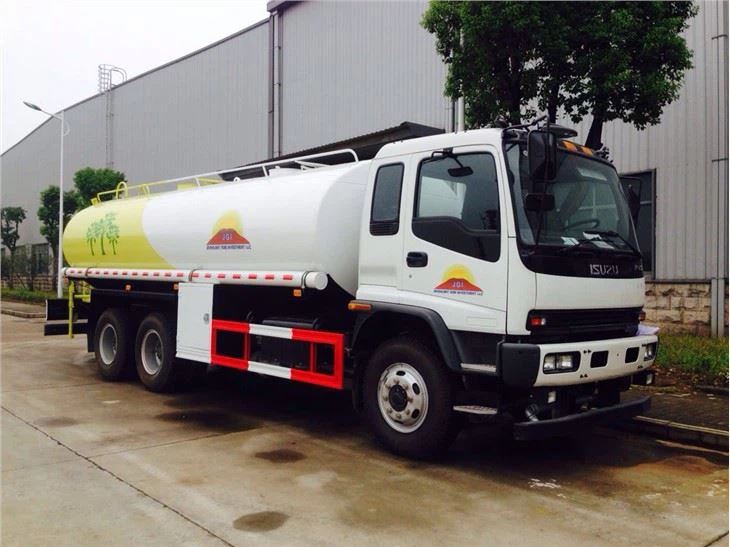In the construction industry, small mixer trucks play a vital role in ensuring that concrete is delivered efficiently and effectively. This article delves into the world of small mixer trucks, covering their types, features, advantages, and how they fit into various construction projects.
Understanding Small Mixer Trucks
Small mixer trucks are specialized vehicles designed for transporting and mixing concrete. Unlike larger mixer trucks, they are compact and maneuverable, making them suitable for residential and small-scale construction projects. Their design allows for easy navigation through narrow streets and tight spaces.
Features of Small Mixer Trucks
Small mixer trucks come equipped with various features that set them apart from larger trucks:
- Size: Typically, small mixer trucks have a capacity ranging from 1 to 3 cubic yards.
- Agitating Drum: Equipped with a rotating drum that keeps the concrete mixed during transit.
- Four-Wheel Drive: Many small mixer trucks feature four-wheel drive for enhanced maneuverability.
- Weight: Generally lighter than larger mixers, allowing easier handling and transport.
Types of Small Mixer Trucks
Understanding the different types of small mixer trucks is essential for selecting the right one for your project.
1. Mini Concrete Mixer Trucks
Mini concrete mixer trucks are the smallest type, ideal for small residential jobs. They can transport up to 1 cubic yard of concrete.
2. Compact Concrete Mixer Trucks
These trucks usually carry between 1 to 3 cubic yards of concrete. They are perfect for medium-sized projects or urban environments.
3. Towable Concrete Mixers
While not trucks per se, towable concrete mixers can be towed by small vehicles, making them versatile for DIY projects and smaller constructions.
Advantages of Using Small Mixer Trucks
Small mixer trucks come with numerous benefits that make them an excellent choice for certain projects:
1. Maneuverability
These trucks can navigate narrow job sites and urban areas, which is crucial for projects where access is limited.
2. Cost-Effectiveness
Smaller mixer trucks are generally less expensive to purchase and operate. They consume less fuel and require lower maintenance costs.
3. Perfect for Small Batches
For smaller projects, small mixer trucks can produce just the right amount of concrete, reducing waste and ensuring fresh mixes.
4. Easy to Operate
Small mixer trucks are easier to operate compared to larger trucks, allowing less experienced drivers to manage them effectively.
How to Choose the Right Small Mixer Truck
Selecting the right small mixer truck for your project involves several considerations:
1. Capacity
Determine the volume of concrete you will need. Choose a truck that can efficiently meet that requirement without excess.
2. Job Site Conditions
Assess the terrain and access points of the site. If navigating tight spaces is essential, prioritize smaller models.
3. Engine Power
Consider the engine power, especially if the truck will traverse hilly or uneven terrains. Adequate power ensures reliable performance.
4. Features
Look for additional features, such as four-wheel drive or hydraulic capabilities, which may benefit specific job sites.
Practical Examples of Small Mixer Truck Applications
Small mixer trucks can be used in various scenarios, such as:
1. Residential Foundations
Homeowners can use small mixer trucks for pouring concrete foundations, driveways, and pathways, especially in tight properties.
2. Landscaping Projects
Landscape contractors often require smaller batches of concrete for features like retaining walls or decorative structures.
3. Repair Works
Small mixer trucks are perfect for repair work in urban areas where access is limited, facilitating quick and effective concrete delivery.
Maintenance Tips for Small Mixer Trucks
Regular maintenance keeps small mixer trucks in good working condition.
1. Regular Cleaning
Clean the drum and how it operates to prevent concrete buildup, which can damage the mixer over time.
2. Check Fluid Levels
Regularly inspect and top off engine oil, hydraulic fluid, and coolant to ensure optimal performance.
3. Tire Maintenance
Monitor tire pressure and tread depth regularly to ensure safe operation and mobility.
Cost Considerations
Understanding the costs associated with small mixer trucks is crucial for budgeting.
1. Purchase Cost
Prices for small mixer trucks can range widely based on make, model, and features. Expect to pay anywhere from $20,000 to $70,000.
2. Operational Costs
Fuel, maintenance, insurance, and licensing fees make up the operational costs. Budgeting for these expenses is essential for avoiding surprises.
3. Rental Options
If purchasing is not feasible, consider renting a small mixer truck. Rental prices typically range from $150 to $500 per day depending on size and location.
Safety Tips for Operating Small Mixer Trucks
Safety is paramount when operating small mixer trucks.
1. Training
Ensure that all drivers are adequately trained in operating the specific model of the mixer truck.
2. Wear Appropriate Safety Gear
Operators should wear personal protective equipment, including helmets, gloves, and steel-toed shoes.
3. Perform Pre-Trip Inspections
Always inspect the truck for any mechanical issues before use and ensure all safety features are functional.
Frequently Asked Questions (FAQ)
1. What is the typical size of a small mixer truck?
Small mixer trucks typically have a capacity ranging from 1 to 3 cubic yards, designed for small construction projects.
2. Can I operate a small mixer truck without experience?
While it’s best to have training and experience, small mixer trucks are generally easier to operate than larger models. However, proper training is recommended.
3. How much does a small mixer truck cost?
Purchase prices can range from $20,000 to $70,000, depending on the model and features. Rental rates are typically between $150 and $500 per day.
4. Are small mixer trucks suitable for residential work?
Yes, small mixer trucks are ideal for residential work, including foundation pouring and small landscaping projects.
5. What maintenance is required for small mixer trucks?
Regular cleaning of the drum, checking fluid levels, and tire maintenance are essential for keeping small mixer trucks in good condition.
6. Where can I rent a small mixer truck?
Small mixer trucks can be rented from construction equipment rental companies, and many offer flexible rental terms.





